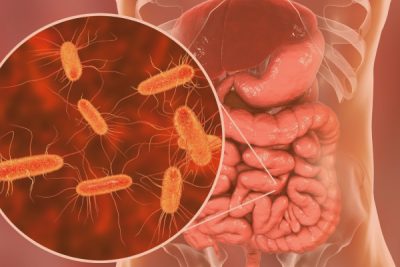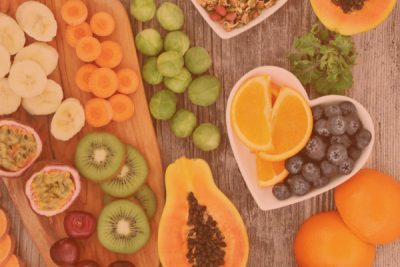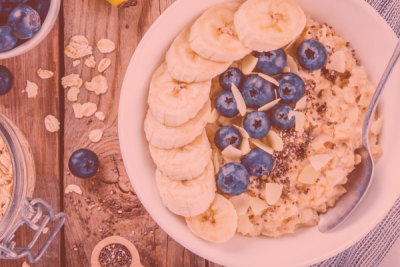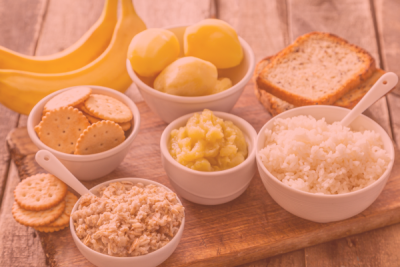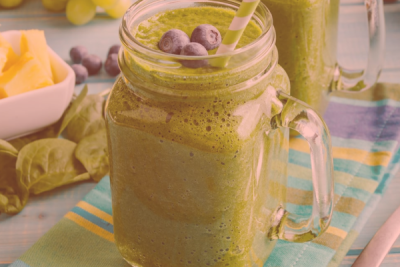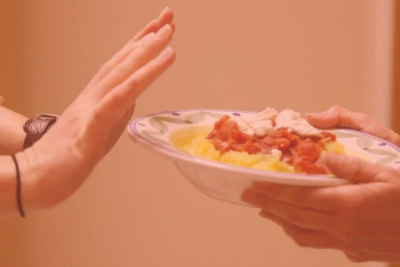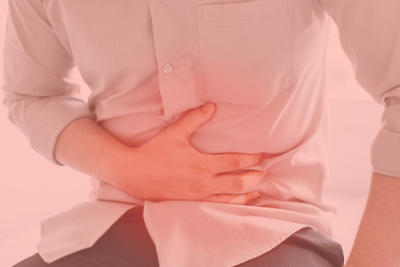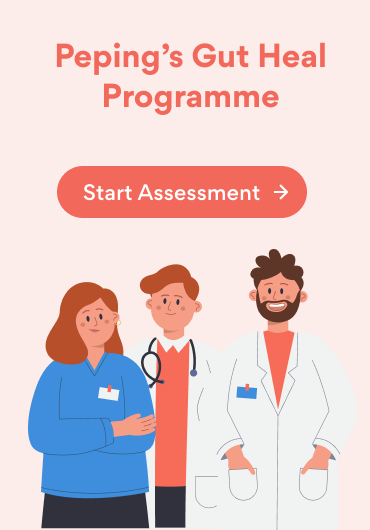As the weekend comes knocking at our doorstep, most of us have probably already made some boozy plans. But before you pour yourself that drink, let’s take a moment to uncover a hidden guest that might crash your party—Gastroesophageal Reflux Disease (GERD). A common gastrointestinal disease aka troublemaker that can turn your stomach into a volcano of discomfort. In this blog, we’re going to spill the beans on how alcohol and GERD play a not-so-friendly game. So, grab a drink (non-acidic preferably) and join us on a wild ride through the intricate world of booze and digestive disorders.
But first… what is GERD?
Gastroesophageal Reflux Disease (GERD), also known as acid reflux, is a chronic condition characterized by the backflow of stomach acid into the esophagus. This occurs when the lower esophageal sphincter (LES), a muscular valve that separates the esophagus from the stomach, becomes weakened or relaxes inappropriately. As a result, the stomach acid, which should stay in the stomach to aid digestion, makes its way back up, causing a wide range of symptoms like abdominal bloating, a gassy stomach, heartburn and more.
What are the symptoms of GERD?
One of the primary symptoms experienced by individuals with GERD is heartburn, a painful sensation felt in the chest area, often described as a burning or tightening feeling.
The next symptom is the regurgitation of stomach contents which is the backward flow of acidic liquid or partially digested food into the throat or mouth, leaving an unpleasant taste.
You might also experience a persistent, uncomfortable burning sensation in the chest or throat, known as acid indigestion.
Note: GERD is a gastrointestinal disorder which can be a chronic condition, meaning it can persist over a long period. If left untreated or unmanaged, it can lead to complications such as esophagitis (inflammation of the esophagus), strictures (narrowing of the esophagus), or even Barrett’s esophagus (a precancerous condition).
What are the main causes of GERD?
GERD can have several causes such as smoking, certain types of medication or obesity. However, in this blog, we’re here to address alcohol, whichl is definitely on the list of culprits. So, let’s dive into the reasons why alcohol and GERD aren’t exactly the best drinking buddies.
- A weakened Lower Esophageal Sphincter (LES)
The LES is like the gatekeeper between your stomach and esophagus. It’s responsible for keeping the stomach acid where it belongs. But sometimes, this gatekeeper decides to take a break and relaxes inappropriately. However, when the LES gets too relaxed, it allows stomach acid to flow back up into the esophagus, leading to the symptoms of GERD. - And alcohol is related to this because…?
Well, alcohol has this uncanny ability to chill out not just us, but also our LES. It’s like the ultimate relaxation buddy, except it’s causing mischief in your digestive system. So, while you may be feeling relaxed and carefree after a few drinks, your LES might be partying a little too hard for its own good. - Increased Stomach Acid Production
You know that moment when you’re at a party and the music suddenly gets louder, making it impossible to have a decent conversation? Well, alcohol can be the DJ that cranks up the volume of stomach acid production. When you consume alcohol, it stimulates the release of gastric acid, turning your stomach into a dance floor for acid production. And excessive stomach acid increases the chances of it splashing back up into the sensitive esophageal lining, igniting the uncomfortable, fiery sensation we all call heartburn. - Psst, remember that it’s not just about the quantity of acid; it’s also about the quality…
Some alcoholic beverages are more acidic than others. Take red wine, for example which is highly acidic in nature. If you’re already prone to acid reflux, opting for less acidic alcoholic beverages might be a wise choice. Maybe it’s time to explore the world of cocktails beyond the classic “Whiskey on the Rocks” and opt for a “Whiskey in Moderation” instead.
- Irritation of the Esophageal Lining
GERD isn’t just about acid reflux; it’s also about the potential damage it can inflict on the delicate lining of the esophagus. When stomach acid repeatedly splashes up into the esophagus, it’s like a corrosive wave that can wreak havoc on the sensitive tissues.
Now, let’s add alcohol to the mix and see how it adds insult to injury…
Alcohol, with its inherent irritating tendencies, can further inflame and irritate the already delicate esophageal lining. It’s like pouring salt on a wound or rubbing lemon juice on a paper cut—ouch!
When you consume alcoholic beverages, the alcohol comes into direct contact with the irritated esophageal tissues, intensifying the discomfort and potentially prolonging the healing process. It’s like inviting trouble to an already fiery party, where acid reflux and alcohol join forces to create a perfect storm of irritation.
How can I manage alcohol related GERD?
Don’t worry, there is hope. So let’s talk about how to navigate the alcohol-GERD conundrum without sacrificing all the fun!
Moderation is Key
Ah, the golden rule that applies to so many things in life—moderation is key. While completely abstaining from alcohol might be the ideal scenario for managing GERD, we understand that it’s not always the most practical or enjoyable option. So, instead of going bottoms up all night, try to limit your alcohol consumption to a moderate level. Pace yourself, sip slowly, and savor the flavor without going overboard. Your stomach will thank you for it, and so will your future self when you wake up without regret.
Choose Wisely
When it comes to selecting alcoholic beverages, not all choices are created equal, especially if you’re aiming to minimize the risk of triggering GERD symptoms. So, what say we take a crash course in the art of drink selection and discover the 3 golden rules to choosing the right drinks for your night out?
Rule No 1:Opt for Low-Acid Options
Acidity plays a significant role in aggravating GERD symptoms. Acidic beverages can further irritate the esophagus and contribute to acid reflux. Therefore, it’s wise to choose alcoholic drinks that are low in acidity. Here are a few examples:
- Vodka: Vodka is often regarded as a neutral spirit with a lower acidity level. It’s like the Switzerland of the alcohol world—neutral, diplomatic, and unlikely to cause a disturbance in your digestive system. However, be mindful of what you mix it with, as sugary or acidic mixers can still trigger symptoms.
- Gin: Gin is another option that tends to have a lower acidity compared to some other spirits. It’s made from botanicals such as juniper berries, which provide its distinct flavor profile. Pair it with soda and a squeeze of lemon for a refreshing and relatively GERD-friendly choice.
- Light Beers: When it comes to beer, lighter options are generally better for GERD sufferers. Light beers typically have a lower alcohol content and are less likely to cause excessive acid production.
- Dry White Wines: If you’re a wine lover, opting for dry white wines can be a safer bet. Dry whites, such as Sauvignon Blanc or Pinot Grigio, generally have less acidity compared to sweeter or more full-bodied varieties. Just be cautious with the quantity, as even low-acid wines can still contribute to acid reflux if consumed in excess.
Rule No 2: Steer Clear of Citrus
Citrus fruits and their juices are known for their high acidity levels. So, it’s wise to avoid cocktails or mixed drinks that contain citrus components. Acidic mixers like orange juice, lemonade, or grapefruit juice can exacerbate GERD symptoms. Instead, consider alternatives such as cranberry juice or club soda for a touch of flavor without the added acidity.
Rule No 3: Say Boo to Bubbles
While carbonation itself doesn’t directly cause acid reflux, it can contribute to bloating and increase the pressure on the lower esophageal sphincter (LES), potentially leading to reflux. If you find that carbonated beverages trigger your symptoms, it may be best to avoid sparkling wines, champagne, or heavily carbonated cocktails. Opting for still or lightly carbonated options can be a safer choice for your stomach.
Now that you’re armed with our sacred rules to drink selection, you can party responsibly and stay GERD free! You’re welcome.
Dilute and Hydrate
Alcohol can dehydrate the body, and dehydration can worsen GERD symptoms. To counteract this, make a conscious effort to stay hydrated while consuming alcohol. Drink plenty of water alongside your alcoholic beverages to maintain a healthy fluid balance and minimize the effects of dehydration. Maybe consider diluting your drinks with water, ice, or even non-acidic mixers to lower the overall alcohol content and reduce the potential for acid reflux.
Timing is Everything
When you have GERD, timing can make a world of difference. It’s a good idea to avoid consuming alcohol on an empty stomach, as this can trigger acid production and increase the likelihood of reflux. Instead, have a meal or snack before drinking to create a buffer between your stomach lining and the alcohol. Additionally, try to finish your last drink well before bedtime to give your body enough time to digest the alcohol before lying down. Gravity can be your ally in keeping that pesky stomach acid where it belongs. So, enjoy your drink, but give yourself enough time to let the party settle before drifting off to dreamland.
What are some healthy pre-alcohol snack options, you ask? Well, we have a whole list!
- Plain Khakra or Papad: Opt for plain versions without any added spices or flavors to keep them gentle on your stomach.
- Plain Curd: A cool and soothing snack that can help balance the acidity in your stomach
- Poha: Prepare it with minimal spices to keep it light and GERD-friendly and add some chopped vegetables like cucumber or grated coconut for a refreshing twist.
- Idli: Soft, fluffy, and gentle on the stomach. A delicious and healthy snack that doesn’t overwhelm your digestive system.
- Boiled Chana: A simple yet nutritious snack, boiled chana can be a great option to munch on while enjoying your drink. Sprinkle some light chaat masala or rock salt for added flavor, keeping it mild to avoid triggering GERD symptoms.
- Plain Baked Papdi or Mathri: Opt for baked versions instead of deep-fried, for a healthier twist. Enjoy them plain or with a side of curd or a light chutney.
- Coconut Water: While not a snack per se, coconut water is a refreshing and hydrating drink that pairs well with alcoholic beverages. It not only helps quench your thirst but also provides a natural sweetness without triggering acid reflux.
Listen to Your Body
Last but definitely not least, listen to your body. Each person’s tolerance to alcohol and sensitivity to GERD can vary, so pay attention to how your body reacts. If you notice that even a small amount of alcohol triggers your symptoms, it might be best to steer clear of it altogether. Your health and comfort should always be a top priority, even when the temptation to join the party is strong. Remember, your body has its own unique playlist, and sometimes it’s best to dance to your own rhythm.
And there you have it—some insights into the intriguing dance between alcohol and GERD. Armed with this knowledge, you can now navigate the party scene while keeping your digestive system happy. So, the next time you raise a glass, toast to a night of fun without the unwanted guests of heartburn and acid reflux.
Cheers to good times and good digestive health!



